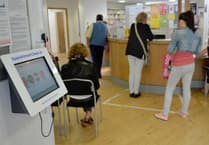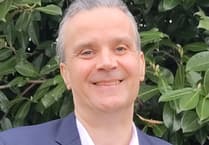EAST Hampshire MP Damian Hinds has welcomed announcements made in last week’s Autumn Statement.
Following chancellor Philip Hammond’s statement, Mr Hinds spoke highly of plans to help people “keep more of what they earn”, new measures to boost incomes, and the on-going reforms to make sure “work always pays”.
“Raising the tax-free personal allowance has done more to improve the lot of working people,” Mr Hinds said. “Currently £11,000 a year, this will rise to £11,500 in 2017-8 and to £12,500 by 2020-21. As a result of the changes made since 2010, someone with a salary of £15,000 pays just £800 a year in income tax now compared to £1,705 six years ago. And the point at which people pay the higher rate of income tax is also being raised from £43,000 this year to £45,000 in 2017-18, and targeted to be £50,000 by the end of this parliament.
“A further boost to incomes will come with the increase in the National Living Wage from £7.20 to £7.50 in April 2017 – a further pay rise for 1.3 million people, worth more than £500 a year to a full-time worker.
“Universal Credit is an important reform to our benefits system designed to make sure work always pays. To reinforce that, the Universal Credit taper rate will be reduced from 65 per cent to 63 per cent – equivalent to a tax cut for those in work on low incomes.”
Mr Hinds also highlighted the introduction of 30 hours of free childcare for three and four year olds from September 2017 and the higher rate of reimbursement for childcare costs for low earners at 85 per cent.
“Another important announcement was the continuing freeze on fuel duty in 2017, which is particularly significant for a rural area such as East Hampshire, and will save drivers £130 a year on average,” he added.
The Autumn Statement aims to provide a “stable economic platform” as the UK prepares to leave the European Union and continues to address some of the “long-term challenges to make Britain more productive”, including some “substantial infrastructure investments”.
A new National Productivity Investment Fund is being set up to provide £23bn of spending in areas such as transport, digital communication, R&D and housing. More investment is also earmarked for future transport technology, including £100m for testing driverless cars and £80m to install charging points for ultra-low emission cars.
“I was especially pleased to see the new first year allowance being introduced to enable companies to deduct the cost of installing electric charge-points from pre-tax profits, and the extra £450m being spent on trialling railway digital signalling technology,” Mr Hinds said. “Any measures that can improve the capacity and reliability of the rail services we rely on in East Hampshire is very welcome.”
Business has been “given a boost” with the confirmation that corporation tax will be cut to 17 per cent by 2020 – the lowest in the G20 – and access to £400m of funding through the British Business Bank for innovative small businesses.
But shadow chancellor John McDonnell said that Mr Hammond’s statement showed the government had once again failed to hit its fiscal targets.
He said the statement “places on record the abject failure of the last six wasted years and offers no hope for the future”.
“We’ve heard today there’ll be more taxes, more debt and more borrowing,” he added.
Echoing previous criticism, he said that the autumn statement had cemented George Osborne’s “long-term economic plan” as a failure.
The chancellor’s announcement involved higher borrowing, to be spent on infrastructure, housing and so on. This loosening of the purse strings is actually in line with Labour’s position on spending.
Still, Mr McDonnell accused the government of having “no answers to the challenges facing our country following Brexit, and no vision to secure our future prosperity”.
Mr Hinds concluded: “The backdrop for this Autumn Statement is challenging but it delivers more support and help for working families, backs businesses, and is investing in much needed infrastructure projects and world-class digital technologies.
“All of these are important to make sure we have an economy fit for the future.”




